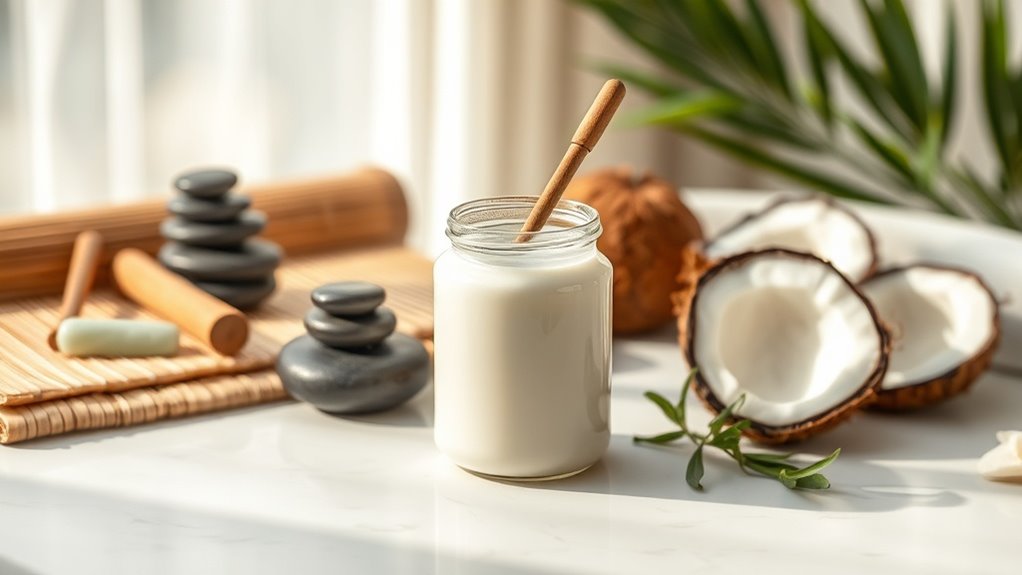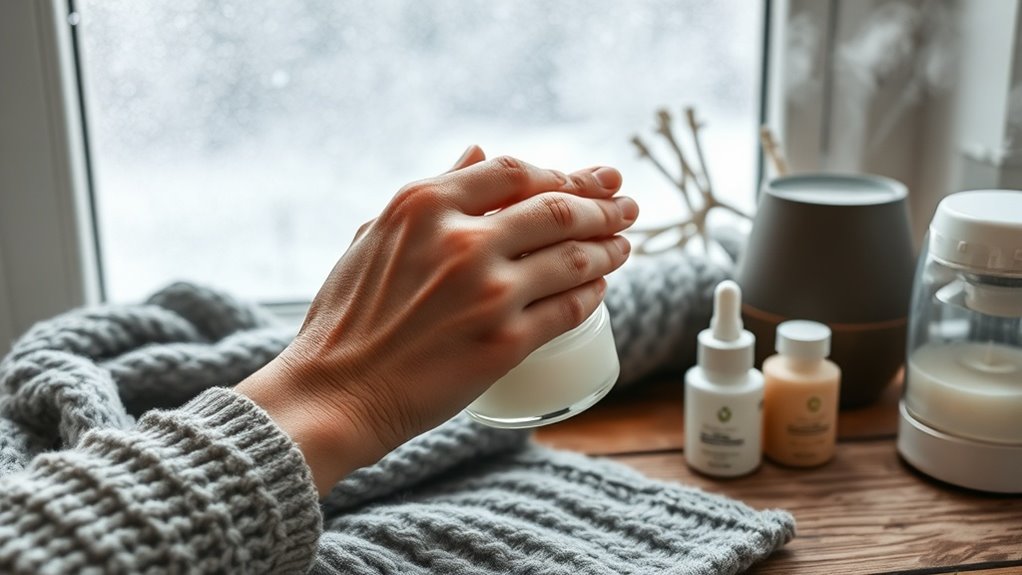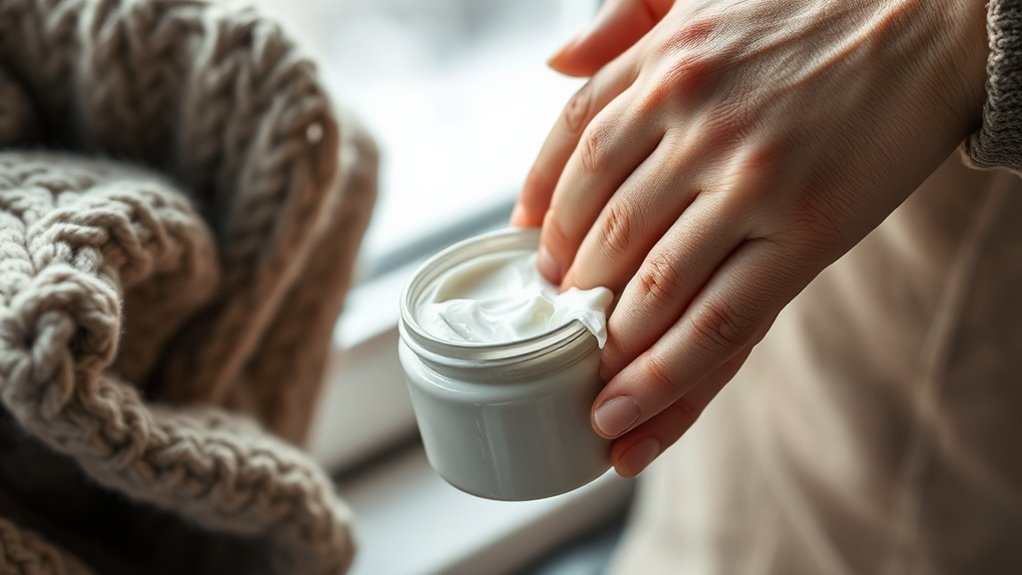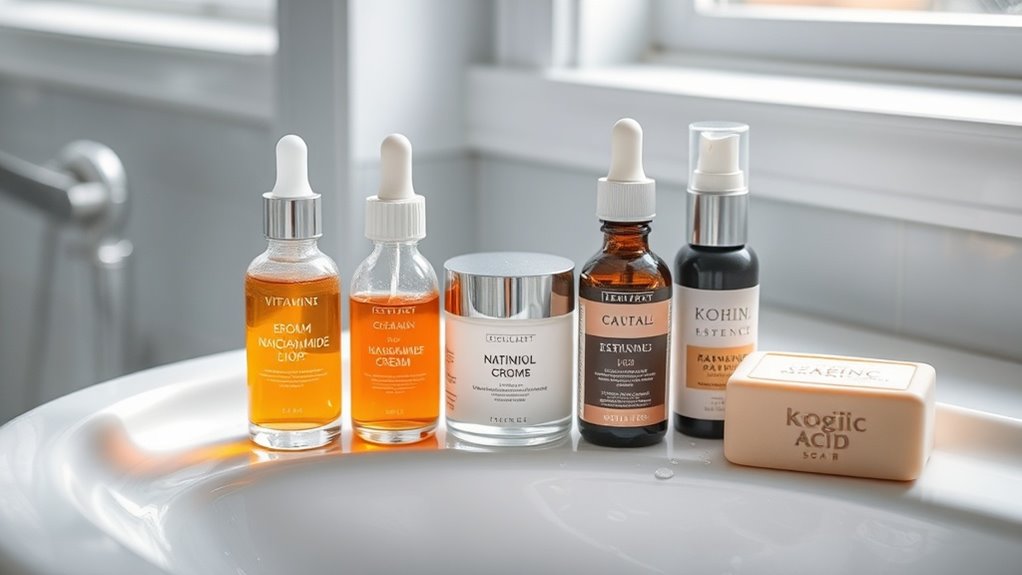Sensitive Skin Tips That Keep Irritation Away
If you’re dealing with sensitive skin, you’ll need more than just basic skincare products to maintain a healthy complexion. Your skin’s defensive barrier requires strategic care and protection from environmental aggressors, harsh ingredients, and lifestyle factors that can trigger irritation. While managing sensitive skin might seem overwhelming, understanding your specific triggers and implementing targeted solutions can transform your daily skincare experience from one of constant concern to confident control.
Understanding Your Skin’s Triggers and Warning Signs
Sensitive skin requires vigilant observation and awareness of your unique triggers. Pay attention to how your skin reacts to environmental factors, skincare products, and lifestyle habits.
Common triggers include harsh chemicals, temperature changes, UV exposure, and certain fabrics.
Watch for warning signs like redness, burning, itching, or stinging sensations. These reactions typically appear within minutes to hours after exposure.
One of the most valuable sensitive skin tips is maintaining a detailed log of products and circumstances that cause reactions. This documentation helps identify patterns and allows you to develop targeted prevention strategies. Additionally, understanding common irritants that can trigger reactions is crucial in minimizing skin sensitivity.
Gentle Cleansing Practices for Delicate Skin
After identifying your skin’s triggers, establishing proper cleansing habits becomes the foundation of your skincare routine.
Select a fragrance-free, sulfate-free cleanser with minimal ingredients and a pH between 4.5-5.5. Use lukewarm water, as hot or cold temperatures can trigger sensitivity.
Apply your cleanser with clean fingertips using gentle circular motions. Don’t scrub or use washcloths, as mechanical friction can irritate delicate skin.
Limit washing to twice daily, and if you’re extremely sensitive, consider using just water in the morning.
Pat your face dry with a soft cotton towel rather than rubbing, leaving skin slightly damp for better product absorption.
Building a Safe and Effective Skincare Routine
When building a routine for sensitive skin, it’s crucial to introduce new products gradually and methodically. Start with a basic three-step routine: gentle cleanser, moisturizer, and sunscreen. Wait at least two weeks before adding each new product to identify potential irritants.
Select fragrance-free products with minimal ingredients and avoid common sensitizers like alcohol, essential oils, and harsh exfoliants.
Patch test every new product on your inner arm for 24-48 hours before facial application. Document any reactions in a skincare journal, noting specific ingredients that trigger sensitivity.
Always prioritize barrier repair products containing ceramides, hyaluronic acid, and niacinamide. Incorporate hypoallergenic toners in your routine to further soothe and protect the skin.
Natural Remedies and Soothing Ingredients
Nature offers several evidence-based ingredients that can effectively calm irritated skin and reduce inflammation. You’ll find potent anti-inflammatory properties in aloe vera, chamomile, and green tea extracts. Colloidal oatmeal acts as a protective barrier while relieving itching and redness. Look for products containing calendula, which promotes healing and soothes irritation. Honey’s natural antibacterial properties help calm sensitive skin while maintaining hydration. Cucumber extract provides cooling relief and antioxidant protection. For peak results, choose formulations that combine these gentle ingredients with minimal additives, and always patch test before full application. Additionally, incorporating anti-inflammatory ingredients can significantly enhance the effectiveness of your skincare routine.
Lifestyle Changes to Protect Sensitive Skin
Making targeted lifestyle adjustments can greatly reduce skin sensitivity and prevent flare-ups. You’ll need to identify and eliminate environmental triggers while adopting protective habits.
| Factor | Impact | Solution |
|---|---|---|
| Sleep | Affects repair | Get 7-9 hours nightly |
| Stress | Triggers inflammation | Practice relaxation |
| Diet | Influences reactions | Avoid trigger foods |
| Exercise | Impacts blood flow | Moderate activity |
| Environment | External irritants | Control humidity |
Monitor your skin’s response to these changes and adjust accordingly. Remember to maintain consistent indoor temperatures, use appropriate protective clothing, and stay hydrated throughout the day. Additionally, incorporating essential oils for skin care may provide soothing effects and help keep irritation at bay. Track your skin’s reactions to help identify patterns and optimize your routine.




